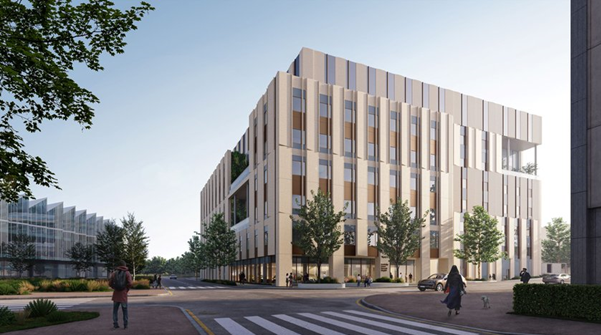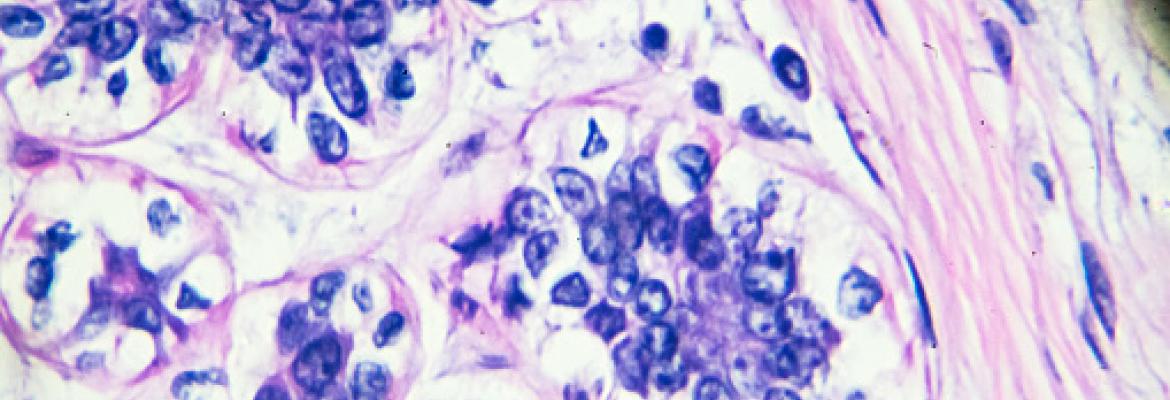Full time clinical training in Medical Oncology takes four years. All site specialisation is covered with multi-disciplinary joint clinics. Cancer treatment in West Anglia is provided in a hub and spoke model. Cambridge is at the hub with major units at Bedford, Peterborough, Huntingdon, Bury St Edmunds and King's Lynn. Consultant Medical Oncologists are in place who work in Cambridge and Peterborough, King's Lynn and Bury St Edmunds. All of these consultants support recruitment to clinical trials. Whilst most training is provided in Cambridge, it is an important feature of the programme that a total of up to one year is spent training at the cancer units (Peterborough, King's Lynn and Southend). Commonly these are the first training post (ST3) which trainees are placed into, allowing a broad range of experience in Medical Oncology over the first year of specialty training. Trainee feedback for these DGH posts is positive and we view a strength of the clinical training the ability within the region to have both DGH and Cancer Centre experience. Where possible trainees are supported within their timetables to attend audit/ academic activities at Cambridge (Tuesday), this maintains and develops stronger links with the trainee cohort and helps prepare for changing location in due course. See table below for current rotations and Clinical Supervisors, these have been updated from April 2018 in order to cover all the essential elements of the 2017 Medical Oncology Curriculum and include a rotation attached to the clinical trials teams. On call is part of a joint rota with trainees in Clinical Oncology at Cambridge, trainees placed in Southend participate in the on-call rota at Southend instead. From Autumn 2019 a post based at The Lister (Stevenage) and Mount Vernon will re-join the East of England programme and excitingly we will be offering additional NTN posts based in Cambridge starting Autumn 2019.
During the four clinical years there is much opportunity to be involved in research projects for those who are motivated including clinical trials. All trainees are expected to undertake a PhD or MD, with support and opportunities for those on NTN training as well as those trainees on the integrated academic programme.
Oncology at Addenbrookes Hospital, Cambridge
- We provide a service to more than 4,000 new patients each year, from East Anglia and beyond. Each year over 2000 individual patients, commence chemotherapy with over 11,000 treatments administered.
- Chemotherapy service functions as both a local service for Cambridgeshire and a specialist service for the Anglian region and beyond. We receive referrals from across our region as well as nationally.
- We have expertise in the use of all of the common types of treatment and most of the more specialist ones.
- We have very close links with the University of Cambridge Departments of Oncology and Haematology. Many of our staff work for both the hospital and the university. This ensures that the high-quality cancer care we offer is underpinned by excellent research. Currently the department comprises 13 NHS consultants and 7 University consultants with several new appointments planned for 2023
- We offer numerous ground-breaking new treatments within clinical trials. Over 2000 participants enter our clinical trials each year in studies that cover the major tumour sites as well as dedicated Early Phase Clinical Trials. Details on the Cambridge Cancer Trials Centre can be located here Cambridge Cancer Trials Centre | CRUK CC (crukcambridgecentre.org.uk)
- Dedicated Teenage Cancer Trust Unit (based around ward C9) to treat young patients between the ages of 16 and 24 years in an appropriate environment
Click here for more information about oncology at Cambridge.
Exciting plans for a new Cancer Research Hospital in development
"I believe we have this at our fingertips: the capacity to extend life and eradicate cancer. But it will take a unique place and that place is Cambridge. It will take a unique facility and that is the Cambridge Cancer Research Hospital."
Professor Richard Gilbertson, Head of Oncology, University of Cambridge /Director of Cancer Research UK Cambridge Centre.
See website for more details: Cambridge Cancer (CCRH) | Cambridge Cancer

Trainees are organised into posts that cover the curriculum requirements, currently aligned with our tumour site teams. Twelve posts are based in Cambridge (including Upper and Lower GI; Thoracic; Urology; Gynaecological; Skin; Hepato-biliary; Breast; Teenage & young Adult and Early Phase trials). A further three posts are split site with Peterborough (two posts including Acute Oncology/ Carcinoma of Unknown Primary, Breast, Neuroendocrine and HPB) and Kings Lynn (one post Upper GI and Breast cancers).
Last, but not least work-life balance
“Cambridge is a vibrant, modern city with a colourful history that attracts visitors from around the world. There are shopping centres and markets, museums, parks and open spaces, and much more. And you’ll be spoilt for choice of places to eat and drink, and places to stay.”
Visit Cambridge
